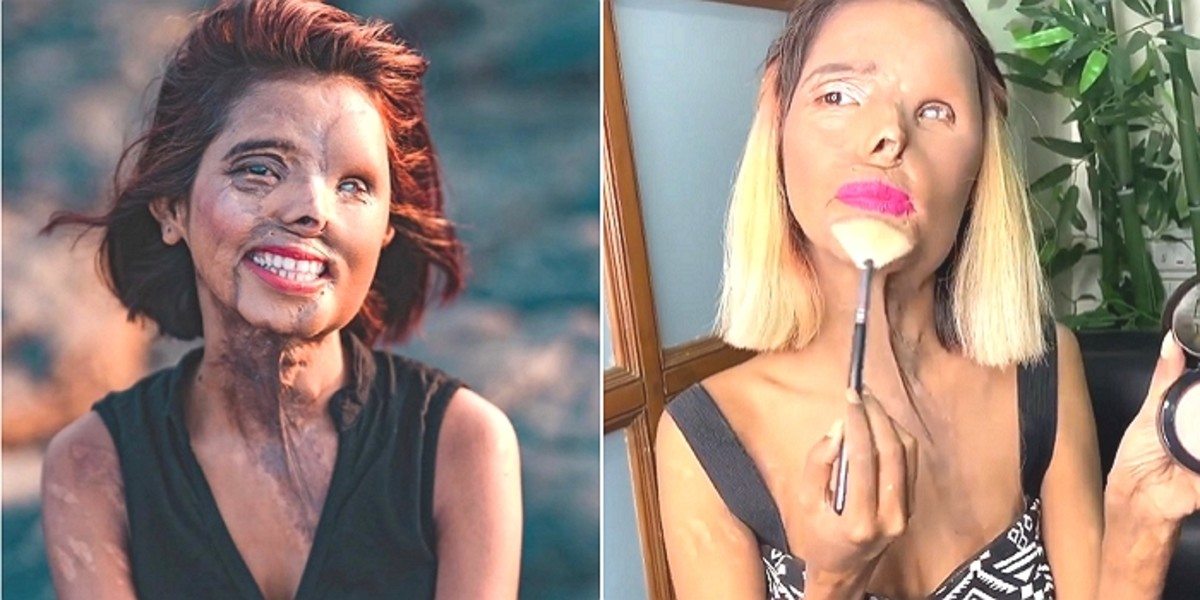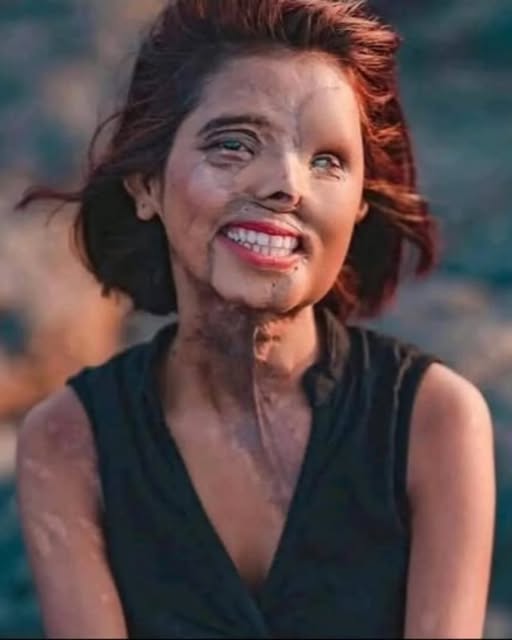“Scars of Strength: How Anmol Turned Pain Into Purpose”.
When Anmol Rodriguez was only two months old, her life was torn apart in a way no child should ever endure. Her father, in a fit of rage, attacked both her and her mother with acid. Her mother did not survive the brutal assault. Little Anmol did—but her tiny body was left covered in devastating burns that would forever mark her.
Doctors had little hope for her survival. Her skin was fragile, her face and body scarred, and every breath was a battle. For the next five years, hospitals became her home. Surgeons operated again and again, while nurses cared for her as if she were their own child. Against all odds, Anmol pulled through. She was not just surviving—she was proving her strength, even as a baby.
Eventually, she was moved to an adoption shelter. There, at least, she found safety. But the world outside those walls was far less kind. Children laughed at her appearance. Adults stared. Whispers and cruel comments followed her everywhere she went. Society seemed to treat her scars as if they defined who she was. For a while, the pain of rejection cut deeper than the burns ever had.

Yet Anmol made a decision that would change the course of her life: she would not let others decide her worth. She would not live in shame. Instead, she began to embrace who she was. Slowly, she started sharing photos of herself online. What she expected was ridicule—but what she received stunned her.
Messages began to flood in. People told her she was beautiful. They called her courageous, inspiring, a true fighter. For the first time, Anmol realized that her scars could be more than reminders of pain—they could be symbols of survival, strength, and resilience.
As her confidence grew, so did her mission. Today, at just 26 years old, Anmol has transformed her suffering into a movement of hope. She is the proud founder of the Acid Attack Survivor Sahas Foundation, an organization dedicated to helping survivors rebuild their lives, regain confidence, and reclaim their place in the world. Through her foundation, she provides support, education, and empowerment for those who have faced the same cruelty she once endured.

Anmol’s message is simple yet powerful:
“Acid doesn’t end our lives. You can destroy the face, but not the soul. We are the same inside.”
These words echo far beyond her own story. They remind us that beauty, dignity, and worth are not defined by appearance but by the strength of the human spirit.
From a child who was almost forgotten, Anmol has become a global voice of resilience. She stands as living proof that even the deepest wounds can become a source of light for others. Her life shows that pain can be transformed into purpose, and scars can become a beacon of hope.
